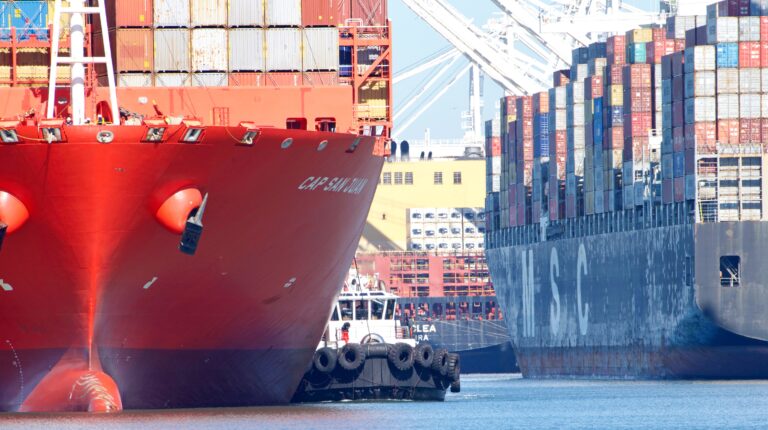USDA announces partnership to ease port congestion

U.S. Agriculture Secretary Tom Vilsack announced plans to increase capacity at the Port of Oakland in Oakland, California and improve service for shippers of U.S. grown agricultural commodities.
The U.S. Department of Agriculture (USDA) is partnering with the Port of Oakland to set up a new 25-acre “pop-up” site to make it easier for agricultural companies to fill empty shipping containers with commodities.
Fewer containers have been made available for U.S. agricultural commodities, as ocean carriers have circumvented traditional marketing channels and rushed containers back to be exported empty and as a result, many of these carriers have suspended service to the Port of Oakland.
USDA is now taking action to reduce these shipping disruptions that have prevented U.S. agricultural products from reaching their markets.
“COVID-19 revealed vulnerabilities across our supply system, both at our ports and in the agricultural sector,” Vilsack said.
“As the economy has made an historic recovery, it has put additional strain on the supply chain. The Biden-Harris Administration is using creative approaches to improve port operations while elevating American-grown food and fiber.
"This partnership with the Port of Oakland builds on our aggressive approach to addressing challenges within the supply chain and sends a strong signal that we are committed to working across the Administration and with state, local and private partners to mitigate complex port capacity and congestion issues and to keep American agriculture on the move.”
The site will provide space to prepare empty containers beginning in early March. Agricultural companies and cooperatives will have easier access to these containers, which they will fill with commodities, restoring shipping services to agricultural products while relieving congestion.
The new site will also have a dedicated gate with the ability to pre-cool refrigerated shipping containers to receive perishable commodities, all while avoiding bottlenecks that would have resulted from entering the main area of the Port.
U.S. Transportation Secretary Pete Buttigieg said: "This creative partnership with USDA and the Port of Oakland will help American farmers and agricultural producers move their product to market while also making better use of empty containers that are causing congestion at the ports.
“After we helped set up inland pop-up ports at the Port of Savannah, we witnessed significant improvements in the flow of goods, and we expect to see similarly positive results once this Oakland facility is open. We look forward to engaging with other ports on similar solutions to congestion.”
California Department of Food and Agriculture Secretary Karen Ross said: "This is an important step that shows the value of players in the supply chain coming together to identify challenges as well as potential solutions."
“I wish to thank the USDA for making this investment. It will help improve access to overseas markets for California agriculture producers at a critical time of year for exports of high-value specialty crops.”
Using Commodity Credit Corporation funds set aside to address market disruptions in September 2021, the USDA will cover 60% of the start-up costs, which reflects the historical share of agricultural products that are marketed through the Port of Oakland. USDA will also help cover additional movement logistics costs at $125 per container.
This project will enhance marketing of U.S. agricultural products through: Quicker pickup of empty containers as the main terminal is bypassed; Access to available equipment; and Fewer unpredictable congestion surcharges for trucks.
This partnership is the culmination of regular and sustained efforts by the Biden-Harris Administration through the Supply Chain Task Force, which includes Secretary Vilsack, Secretary Buttigieg and Port Envoy John Porcari.
The task force has been regularly meeting with states like California and local entities like the Port of Oakland to find creative solutions to alleviate the congestion and put pressure on the ocean carriers to return and restore service for U.S. agricultural shippers.








































